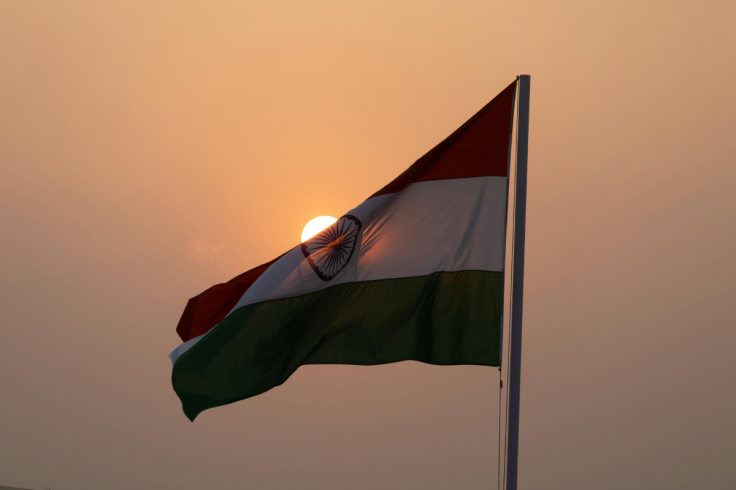Why Trump's Tariffs Hit India Harder Than China — Modi Faces Shashi Tharoor's Warning on the Fallout
The tariffs also contrast with Trump's deal with Pakistan, reducing its tariffs to 19%

US President Donald Trump's trade war has intensified, with India facing 50 per cent tariffs on its exports to the US, a steeper penalty than China's 30 per cent, due to India's continued purchase of Russian oil.
The move, described as unfair, unjustified, and unreasonable by India's Ministry of External Affairs, has sparked domestic criticism, with Congress MP Shashi Tharoor warning of severe economic fallout.
Trump's Tariff Offensive Targets India
On 6 August 2025, Trump signed an executive order imposing an additional 25 per cent tariff on Indian goods, on top of an existing 25 per cent duty, bringing the total to 50 per cent, the highest among US trading partners, alongside Brazil.
The tariffs, effective from 28 August 2025, are a penalty for India's imports of Russian crude oil, which Trump claims fuel Moscow's war in Ukraine.
Michael Kugelman, director of the South Asia Institute at the Wilson Center, explained, 'China has not stood out there and refused to let President Trump take credit for his role in the ceasefire. These are things that happened with India.'
This refers to Trump's claim of brokering a ceasefire between India and Pakistan after the Pahalgam terror attack, a narrative India has rejected, asserting the ceasefire was Pakistan's request.
The tariffs are expected to hit India's textiles, leather, and seafood hard, potentially reducing exports to the US by 40–50 per cent, costing an estimated £4.3 billion ($5.76 billion).
Economic and Political Fallout in India
The tariffs have ignited domestic debate, with Shashi Tharoor, a senior Congress MP, slamming the US move as a very serious blow to India's £67.1 billion ($89.91 billion) trade relationship with the US.
'I don't think that's particularly good news for us, and that takes our total tariffs to 50 per cent, then that's going to make our goods unaffordable to a lot of people in America,' Tharoor told ANI, urging India to consider reciprocal tariffs of 50 per cent on US imports if negotiations fail.
India currently imposes 17 per cent tariffs on US goods, and Tharoor argued for retaliation to protect national interests, stating, 'We should also raise it to 50 per cent. If you do this to us, we will do the same.'
Prime Minister Modi has taken a defiant stance, prioritising India's farmers and energy security.
Speaking at the MS Swaminathan Centenary International Conference on 7 August 2025, Modi declared, 'The interest of farmers is our top priority. India will never compromise with the interests of its farmers, livestock holders, and fishermen. And I know that I will have to pay a huge price for this personally, but I am ready.'
Geopolitical Ripples and Strategic Responses
The tariffs risk derailing two decades of India-US diplomatic progress, with Kugelman describing the situation as the worst crisis in bilateral ties in over 20 years.
X posts from @seemasirohi reflect expert concern, stating, 'President Trump wanted to retain a minimum 20% baseline tariff on India; this was a non-starter for New Delhi.'
What experts say on Trump drastic move against India. Nisha Biswal, former assistant sec of state, now with Asia Group: 1. "President Trump wanted to retain a minimum 20% baseline tariff on India; this was a non-starter for New Delhi. 2. he wanted US agricultural... (more)
— Seema Sirohi (@seemasirohi) July 30, 2025
Meanwhile, @ANI reported, 'On US President Trump imposing an additional 25% tariff on India over Russian oil purchases, Congress MP Shashi Tharoor says, "It's definitely a blow."'
#WATCH | On US President Trump imposing an additional 25% tariff on India over Russian oil purchases, Congress MP Shashi Tharoor says, "I don't think that's particularly good news for us and that takes our total tariffs to 50 per cent then that's going to make our goods… pic.twitter.com/Sh5rEA3mpL
— ANI (@ANI) August 7, 2025
The tariffs also contrast with Trump's deal with Pakistan, reducing its tariffs to 19 per cent and offering support for oil reserve development, raising questions about strategic favouritism.
As Modi prepares for a potential meeting with Trump, India faces a delicate balancing act: Maintaining energy security, protecting its economy, and navigating a global tariff war that could reshape alliances.
© Copyright IBTimes 2025. All rights reserved.





















